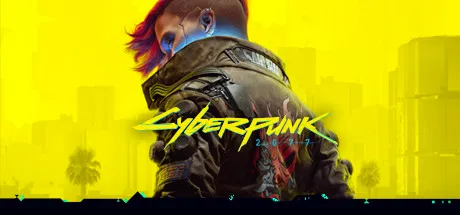
Can you cast your mind back two years? This is how long Cyberpunk 2077 had had to mature, and its also the same period of time that RTX capable graphics cards have had a shining example to challenge them. I, like many others, tried Cyberpunk 2077 when it was first released, and my then 1080TI didn't stand a chance at 4K, but it did an alright job on my secondary monitor at 1080p.
Now, two years on, I've upgraded from that 1080ti to a 3080 and now to a 4090, and the time has come to remove Cyberpunk 2077 from the cellar, after ageing two years; to see if it has become a fine vintage on the PC.
The synopsis that answers the quesiton "What kind of game is Cyberpunk 2077?" is not an easy question to answer. Take one part Grand Theft Auto-esque open world exploration, one part Deus Ex for the thematic environment; and add liberal sprinklings of Bethesda Skyrim bug-laden development shortcuts; and you've got the essence of Cyberpunk 2077 distilled and aerating in the bottle.
That changes when you pour a little bit of that wine into your glass. As the glass fills, you take in the illusory scale of the game. There's buildings everywhere, and they're laden with advertisement for what riches might and world building may lay within. The detail on the store fronts and buildings is so exceptional that you want to look inside, but you must; at the same time; know that the development effort to go into every kind of building would see even further development delays for Cyberpunk 2077.
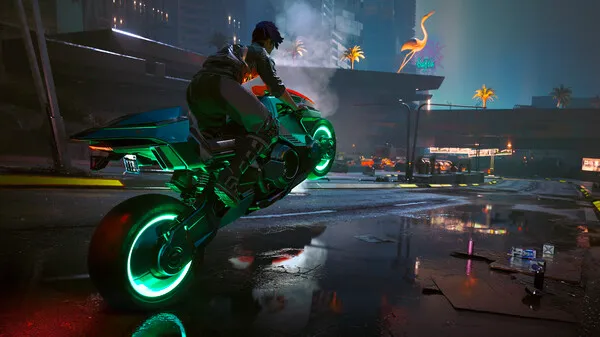
Instead, interior exploration is somewhat limited to the same extent that it would be in any Grand Theft Auto game, with some stores; some bars and clubs, and story or quest locations made available for you to escape the harsh, beautiful, rainy and dystopian streets of Night City, where we found ourselves entering an atmospheric and incredibly immersive environment.
You take on the role of V, and you may choose your character's gender. You also have a variety of sliders to enable you to modify certain aspects of V's anatomy; and this is immediately where you realise that this is not a game for children or those who believe that genitals have no place in a video game.
This carries through in terms of the plot. There's some hard hitting themes here around what makes the world a truly shitty place to live, and the influence of money and power throughout both the streets and aristocratic structure of a city that just seems like it could topple into anarchy at any moment.
Numerous gangs seek to control each neighbourhoods, and corporations do the same; trying to monopolise whatever progress can be garnished from exploiting human resources or those of far flung lands. This world building is all-encompassing, and is evident in every advertisement plastered around the walls of the game; throughout the news clips you hear in elevators or on car radio stations; and through the very items you pick up and interact with.
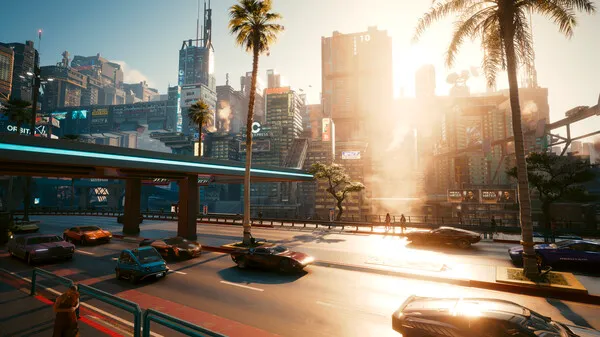
As you proceed through the world and complete activities, you gain perk points, which are linked to primary attributes. This is seperate from your character's level. The primary attributes are standard RPG-fare, but renamed.
First there's Body, which is all about your character's strength and endurance. Through this attribute you've got access to Athletics, Annihilation and Street Brawler. This is a stat for people who want to go around and use their fists, shotguns, or superior running-around skills to dispatch of foes.
Next, there's Reflex; which lets you move and conduct attacks through Assault (rifles and sub machine guns), handguns, and blades. Cyberpunk 2077 has so many edges weapons such as katanas, knives, and other things that go ouch in the night; that makes Reflex probably one of the most useful skills in the game as it gives you a double bang for your buck, melee; and ranged attacks.
Next is where it gets to be fun, at least for me. Technical Ability allows you to do things like Craft items from the scrap salvaged from others; or upgrade things. It also lets you use tech weapons, which are existing types of weapons augmented with cool things like automatic aiming, controlling ricochet; or delivering powerful, charged shots to opponents.
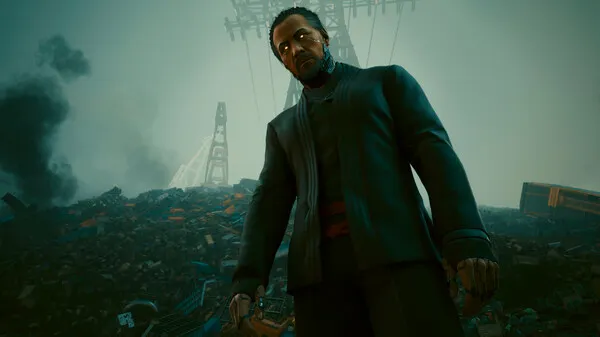
Through Engineering, you can also open up gates and doors that are of a technical nature to access other pathways through quests and jobs, which may either contain treasure, or a quick escape route. Sometimes this ability lets you sneak into areas unseen, and was one that I found genuinely useful throughout my play through.
Next up, there's Intelligence, which plays into other roles in the game, Breaching and Quick hacking. While these two abilities are very similar, they're very different. Breaching allows you to invade an enemy network to disable things like cameras, turrets, and to open some doors; or access intelligence and treasure through a simple hacking mini game.
On the other end of the spectrum, Quickhacking gives you another way to do this, by targeting specific enemies or objects in the environment, and to manipulate them in a bid to cause distraction, damage, or in the case of quickhacking against organic or mechanical enemies, cause damage; disable opponents, or induce a state of chaos through something like the Contagion ability; which my V very much enjoyed.
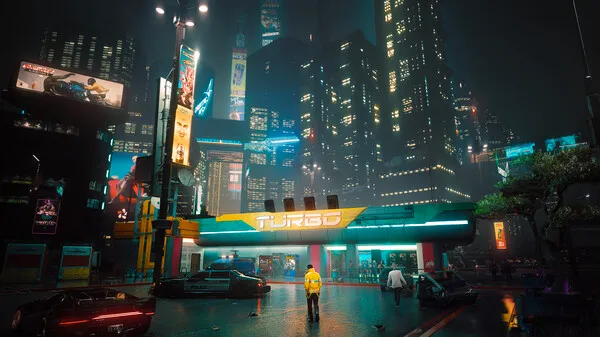
Finally, there's the Cool ability. This is one that I really did not appreciate until I was more than three quarters of the way through the level tree, and if I were to replay Cyberpunk with a more refined character build (though, by the end I found myself sufficiently overpowered) - which lets you use Stealth and probably the most fun mechanic in the game; Cold Blood. Think of Cold Blood like a killing streak; where for each enemy you disable or kill; you get more abilities.
You become a rampaging snowball of fury and it is oh so much fun, and significantly amplifies damage output for stealthy characters, particularly when combined with quick hacking.
As a result, there's an incredibly large scope for characters in Cyberpunk 2077 to be unique and successful in whatever speciality you want to throw them towards.
Perks, within the primary attributes can be reassigned at any time using the Eurodollars in game, which; while at first seems like an expensive endeavour; but as you progress, becomes more and more accessible because there's so much money to be made in the streets of Night City.
Taking place in a completely open world, Night City offers jobs from "fixers", who want you to do things like hack a system, take someone down, capture some intelligence, return stolen goods; or explore some intrigue; which give a variety of rewards. Firstly, XP; which lets you increase your attributes; secondly, cash; which lets you buy cool stuff including apartments and vehicles; and finally; more and more gear.
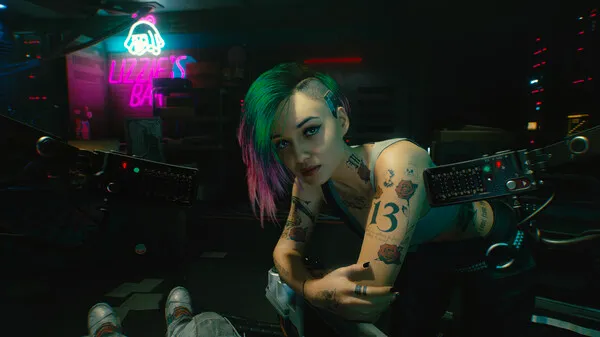
The gear system in Cyberpunk 2077 allows for clothing to act as armour and protection, while also being a representation of what future fashion might look like. Each weapon and clothing piece allows for modification and upgrades through the crafting system, allowing you to refine your build in ways that synergise with your skills and perks.
Most of the time, you won't see your clothes on V; due to the primarily first person view maintained throughout the game; though there are a number of scenes where the viewpoint can change to third person, notably at the start and the end of the game; so make sure you're wearing your finest.
This all makes for a customisation and character development system that is deep and almost overwhelming, with so many options for you to explore. This also adds an incredible amount of replay value; when also combined with the selection of your character's background, and the fact that attribute points are not able to be reassigned.
Getting around Night City is something that can be done on foot, in car, on a motorbike (sorry, cyclists); or through the game's myriad and generous number of fast travel points dispersed through the city. This is in spite of the fact that you do not see trains, buses, or taxi-cab vehicles roaming the streets; but there are a number of cool questlines involving some AI-robo-taxi cars (that look just like ordinary vehicles) that start to go cuckoo around the city.
In fact, there's so much excellent embellishment through even the most minor of quest lines that it all contributes to Cyberpunk 2077's incredible world building and immersion; which is, of course, assisted by the fact that it is a graphical powerhouse.
This does not come without limitations. Even played on an incredibly powerful PC (I have a 5950x, and a RTX 4090) - Cyberpunk 2077 has noticeable pop-in of assets and geometry, and fails to make the world all around you persist with any elegance.
If you swing a full 360 around, sure, the same cars will be there when you look again in a few moments; but if you walk inside a shop to buy some scrap, and walk back out again; it will be a new sea of vehicles, and pedestrians loitering around. One thing that it does get right, is this sort of foveated rendering allowing truly enormous densities of crowds. It really does feel like you're waking down a densely packed city street; with not enough personal space to go around.
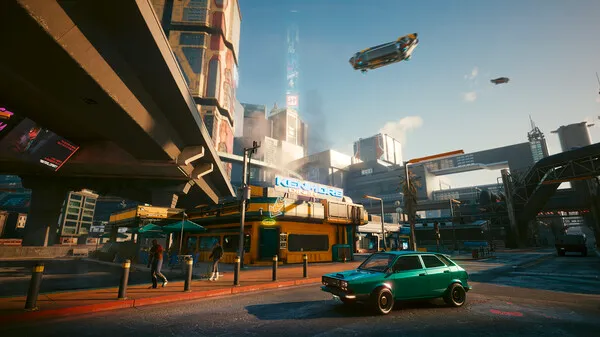
The problem is that all these NPCs are procedurally generated, and can end up looking incredibly funky. The good part about this is that you'll never see the same NPC wandering around the street twice.
These technical issues aside; you've got an enormous world to explore, drive, and ride around it; one that's linked by a complex system of freeways and turnpikes; in a wide roster of vehicles, which - sadly, apart from differences in model, audio; and speed; all handle much the same. I tended to prefer using a motorbike, as you could filter through the dense traffic; but throughout many of the missions, you'll need to drive vehicles that handle in an abominable fashion.
Bugs tend to be most prevalent when driving at speed; with everything in the game loaded "just in time"l suggesting that CD Projekt Red are certainly pushing their engine to the limit in Cyberpunk 2077.
While I didn't see bugs that completely crashed the game; there were a few instances of elevators lacking floors, tunnels not having floors, and this leading to an immersion breaking crash to the centre of the Earth. Still, over about 70 hours of gameplay, I can probably count these instances on one hand, and they were all during the conclusion of the game.
Overall, Cyberpunk 2077 delivers a unique blend of action, stealth, exploration, and provided you have a powerful enough computer; immersion and visuals that are unmatched. There were so many elements where I was wowed by the way in which shadows were cast by light sources that it got my photographer brain churning in an exciting way.
The best part is that there are no gameplay gimmicks like "shooting someone using their reflection as an indicator of their location", but if you look closely enough at that puddle near the cover behind which an enemy is perched, I'm sure you'll see it.
I'd give Cyberpunk a "still needs work" verdict; as all the framework is present for a truly brilliant world, but engine limitations do really let down the imagined scope of this title.
This is the one title that truly makes me excited for the next gen of open world games; and something that makes me want to see more and more representations of Cyberpunk stories in gaming. It worked wonderfully with Deus Ex, and there's so much scope and science fiction material out there to support an entire genre of this, just like we see in fantasy role playing games.
Bring me more.
Want more content from me?
Witness my futile efforts to play my Steam Game collection in alphabetical order.
Are you aware that I love photography? Check out my work in a collection.

If you want to see my Splinterlands antics and rants live, Find me on Twitch
If you prefer sleeping in your designated time zone, go watch replays on YouTube.